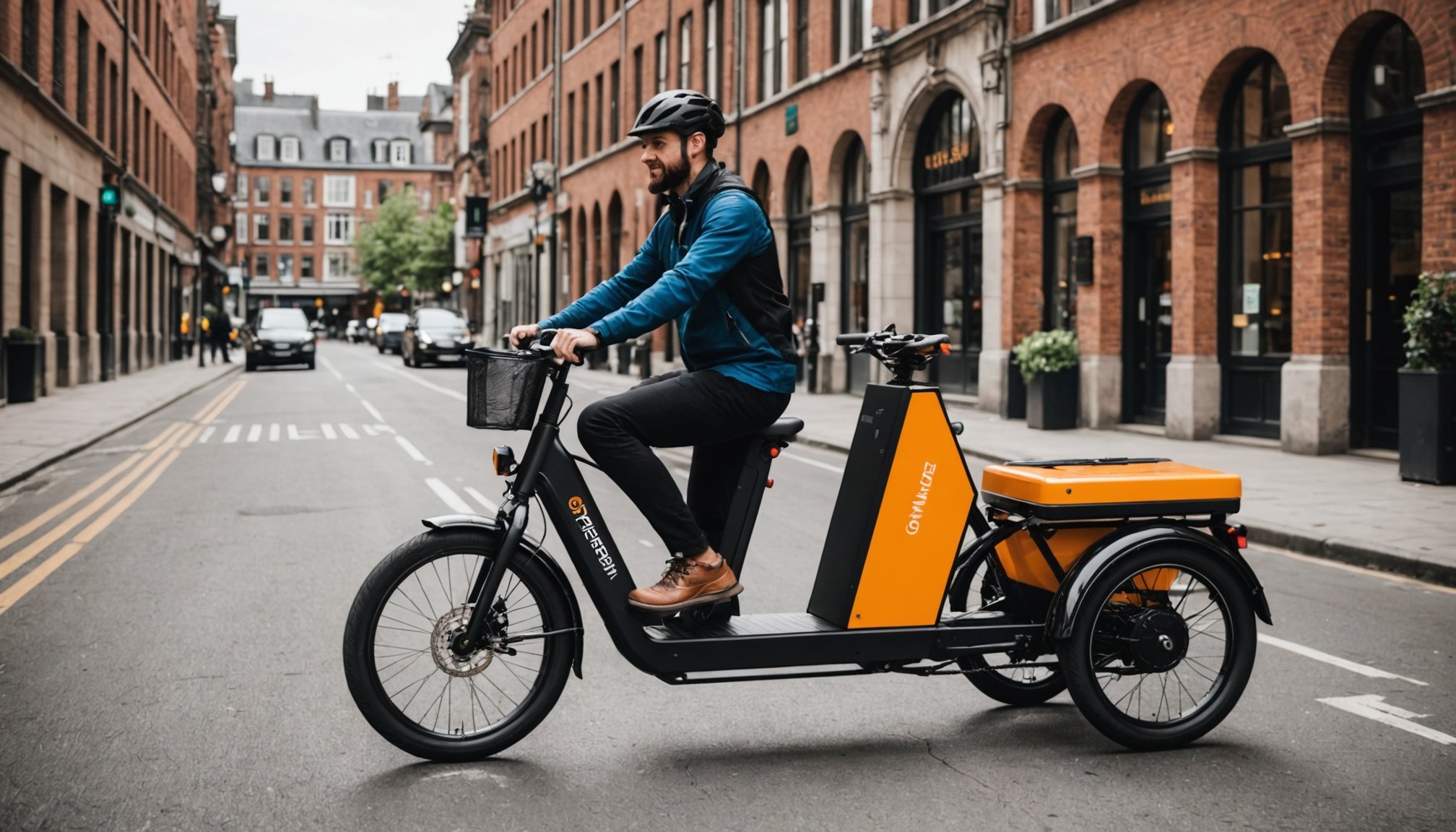Benefits of Electric Cargo Bikes in Urban Delivery
Electric cargo bikes have proven to be transformative in urban delivery solutions, offering notable efficiency gains. Businesses are seeing reduced delivery times thanks to their ability to maneuver through congested urban environments swiftly. Unlike traditional delivery vehicles, electric cargo bikes can access locations faster by navigating narrow streets and lanes, reducing the time spent stuck in traffic.
Moreover, the financial benefits are significant. By adopting electric cargo bikes, companies can save on fuel and maintenance expenses, which are typically higher for conventional delivery vans or trucks. Electric cargo bikes require less energy to operate and fewer maintenance checks, thus decreasing overall operational costs.
Additional reading : Unlocking uk immigration: your comprehensive guide to mastering the latest policies and procedures
The environmental advantages are equally compelling. These bikes contribute to reduced emissions, leading to cleaner urban air and lessening the impact of noise pollution commonly associated with delivery vehicles. By substituting traditional delivery modes with electric options, cities are taking strides toward sustainability and enhancing the quality of urban life.
Adopting electric cargo bikes aligns perfectly with modern urban delivery demands, not only optimizing how goods are transported across cities but also supporting broader environmental and economic goals.
Also to read : Harnessing ai’s potential: revolutionizing predictive analytics in uk healthcare – discover the essential advantages
Environmental Impact of Electric Cargo Bikes
Embracing electric cargo bikes as a sustainable delivery method presents a significant opportunity for reducing greenhouse gases, a major contributor to climate change. Traditional delivery vehicles emit considerable carbon dioxide during deliveries, contributing to urban pollution levels. By contrast, electric cargo bikes produce zero tailpipe emissions, demonstrating a clear reduction in greenhouse gas emissions.
Contribution to Reduced Carbon Footprint
Electric cargo bikes stand as a beacon of eco-friendly transportation by offering a lower carbon footprint than conventional vehicles. Notable case studies in cities like Amsterdam show that implementing these bikes can lead to substantial emissions savings. Reports highlight reduced pollution and improved air quality due to minimized reliance on fossil-fueled vehicles.
Promoting Urban Green Spaces
Reduced vehicular traffic thanks to electric cargo bikes also contributes to greener cities. This transition supports the development of urban green spaces, enhancing the aesthetic and functional aspects of city landscapes. Areas once dominated by thick traffic now enjoy improved air quality metrics, aligning urban settings with sustainability goals. These changes reflect a concerted effort to maintain cleaner, more livable urban environments, benefiting residents and businesses alike.
Operational Efficiency of Electric Cargo Bikes
Electric cargo bikes bring notable improvements to operational efficiency in urban logistics. By offering unprecedented routing flexibility, these bikes navigate congested areas and narrow streets more easily than traditional delivery methods. Electric cargo bikes can reach places that larger delivery vehicles often cannot, reducing delivery times and increasing the speed of service.
The agile nature of electric cargo bikes supports their ability to carry a wide range of cargo sizes and weights. Equipped with adaptable cargo compartments, these bikes can handle varying delivery demands, from small parcels to larger parcels, ensuring a versatile urban delivery solution.
In comparison to traditional vehicles, electric cargo bikes streamline operations with less hassle. Their compact design and electric power allow them to avoid traffic jams and bypass street congestion effectively. Additionally, they offer consistent delivery performance even during peak urban hours.
Reduced space requirements for parking and loading further enhance their efficiency. This advantage translates into more deliverable zones and improved delivery capacities, boosting both logistical operations and customer satisfaction.
Overall, electric cargo bikes redefine urban delivery systems by maximizing efficiency and agility previously unachievable through conventional delivery methods, making them an innovative choice for modern urban logistics.
Case Studies of Successful Implementation
City A: Transforming Last-Mile Delivery
Successful electric cargo bike projects offer insights into how urban areas can evolve for better delivery solutions. One notable example is City A, where the shift to these bikes has significantly enhanced last-mile delivery. Before transitioning, the city faced implementation challenges such as restricted warehouse spaces and traffic regulations. However, solutions like dedicated bike lanes and tailored scheduling strategies helped address these issues, fostering smoother operations.
Measurable outcomes are a testament to the effectiveness of incorporating electric cargo bikes into urban delivery systems. There has been a marked improvement in delivery speed, with bikes reaching destinations up to 30% faster than traditional vehicles in congested areas. This increased speed directly translates to higher customer satisfaction, highlighting the growing preference for efficient and eco-friendly delivery methods.
Through strategic planning and adaptation, City A showcases that embracing electric cargo bike operations not only resolves urban logistical challenges but also elevates the entire delivery process. The city’s success serves as a model for other urban centers looking to modernize their approach to urban logistics while prioritizing efficiency and sustainable practices.
Tips for Integrating Electric Cargo Bikes into Existing Delivery Systems
Integrating electric cargo bikes into current delivery systems requires thorough preparation and strategic planning. An essential first step involves assessing the existing fleet to identify integration opportunities. Consider what proportion of deliveries could be optimized using bikes and how they can complement current modes. A practical approach is to evaluate routes with high congestion or limited vehicle access, areas where electric cargo bikes can offer significant benefits.
Investment plays a crucial role in this transition, demanding careful examination of financing options. Whether through leasing arrangements or purchasing, understanding the financial implications will guide delivery companies in deciding the best model to suit their logistics needs.
Success relies on equipping staff with the necessary training and support. Introduce comprehensive programs to familiarize teams with bike operation and safety procedures. Hands-on training helps ensure a smooth transition, boosting confidence and efficiency among riders.
To streamline integration:
- Conduct a needs assessment focusing on transition feasibility.
- Prioritize investments that align with company goals and financial capacity.
- Develop a robust staff training and support framework.
These initiatives pave the way for logistics improvement, positioning businesses to capitalize on the numerous advantages electric cargo bikes present in the evolving urban delivery landscape.


Comments are closed